-

There’s an apartment for sale in the Fifth Avenue building that was home to New York’s first penthouse — oh, and Ralph Lauren lives there too
By Rosie Paterson
-
-

Where in the world is this? And other questions in the Country Life Quiz of the Day, January 23, 2026
By Country Life
-
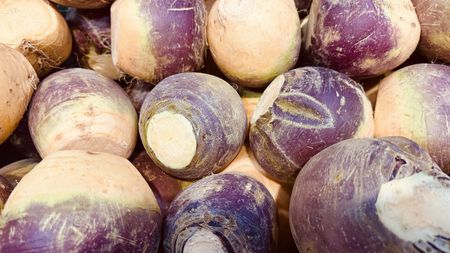
Forget haggis — the humble swede is the real hero of the Burns Night meal
By Douglas Chalmers
-

Come rain or shine: Burberry’s Gabardine Capsule collection celebrates the art of dressing for Britain’s changeable skies
By Rosie Paterson
-

Tom Parker Bowles talks tartiflette: 'This is not a dish worried about precision, elegance or nuance. It is all about beautiful ballast and you wouldn’t want it any other way'
By Tom Parker Bowles
-

A 'wildly romantic' castle that once hosted royalty and supermodels, saved from ruin and ready for a new family to make it their home
By Annabel Dixon
-

How do you add a dash of theatricality to a 1930s house? By taking inspiration from the legendary architect and set designer Oliver Messel
By Arabella Youens
-
Exquisite houses, the beauty of Nature, and how to get the most from your life, straight to your inbox.
People & Places
-
-

Six things that Britain should be proud of, from world-class restaurants and Championship-winning cars to the countryside
-

Gavin Plumley: Shakespeare’s country isn’t Stratford-upon-Avon, it’s the quiet and beautiful Herefordshire countryside where Hamnet was filmed
-

How an eco-friendly interior designer transformed a former milking parlour into a multi-purpose space in the middle of the Pandemic
-

The 400-year-old floors perfectly preserved in the house that inspired Charles Dickens to create Miss Havisham's mansion
-
Property
View all Property-

There’s an apartment for sale in the Fifth Avenue building that was home to New York’s first penthouse — oh, and Ralph Lauren lives there too
By Rosie Paterson
-
-

A 'wildly romantic' castle that once hosted royalty and supermodels, saved from ruin and ready for a new family to make it their home
By Annabel Dixon
-

'Like valuing an antique': The fine art of balancing provenance, history, and size when pricing Britain's rarest homes
By Lucy Denton
-

John Constable's old school is for sale, and it's now a 500-year-old house in the wonkiest village in Britain
By Julie Harding
-

Best country houses for sale this week
By Country Life
-

The house where a young Stephen Fry fell in love with Norfolk is for sale, and it's a charming (and enormous) family home filled with character and warmth
By Toby Keel
-

Nine fixer-uppers for sale, from a six-bedroom farmhouse with a pool for £300,000, to a charming village dairy
By Toby Keel
-
Our expert voices
Interiors
View All Interiors-

How do you add a dash of theatricality to a 1930s house? By taking inspiration from the legendary architect and set designer Oliver Messel
By Arabella Youens
-
-

Are you a curator, a sympathiser or a conscientious objector? Take our Interiors Editor's quiz to discover your design DNA
By Giles Kime
-

‘The pair drove to Belgium in their Mini and returned with the chair wrapped in duvets’: The mother-and-daughter duo that brought a converted Cotswolds barn back to life
By Arabella Youens
-

'You should need little reminding that the 1980s are back': Country Life's interior-design predictions for 2026
By Giles Kime
-

How an eco-friendly interior designer transformed a former milking parlour into a multi-purpose space in the middle of the Pandemic
By Grace McCloud
-

How Britain’s biggest and best country houses are decking the halls (and façades) for Christmas
By Bella Fulford
-

Giles Kime: Cushions, rugs, upholstered stools and sofa blankets are the ingredients of a pleasing new trend
By Giles Kime
-

John Goodall: Restoration is 'an act of recycling', but we need a system that encourages it
By John Goodall
-
LIFE & STYLE
View All LIFE & STYLE-
-

Come rain or shine: Burberry’s Gabardine Capsule collection celebrates the art of dressing for Britain’s changeable skies
By Rosie Paterson
-

Posh people do well on I'm A Celebrity... Get Me Out of Here! because they survived boarding school: Sophia Money-Coutt's snob's guide to reality television
By Sophia Money-Coutts
-

What everyone is talking about this week: Winter weddings might just be better than their summer counterparts
By Will Hosie
-

The monk strap: Where did the shoe with sole and sophistication come from?
By Amie Elizabeth White
-
COUNTRYSIDE
View All THE COUNTRYSIDE-
-

The evergreen appeal of winter tree planting
By Country Life
-
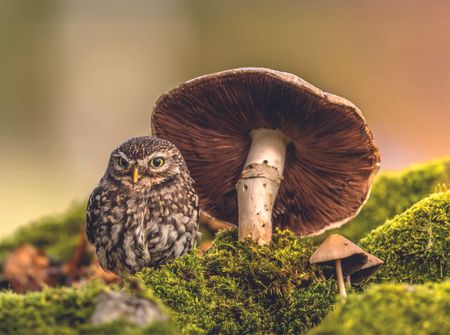
Small but mighty: How can you not love the little owl?
By Mark Cocker
-

From woodland to Westminster: Can the felling of ancient oak trees be an act of cultural service?
By Katharine Freeland
-
Gardens
View All Gardens-

Beautiful, rewarding, unpronounceable: Chaenomeles, the spectacular shrub that grows happily in gardens where azaleas will never bloom
By Charles Quest-Ritson
-
-

What is everyone talking about this week: Rewilding starts in your own back garden — even in the city
By Will Hosie
-

English country gardens once dotted the French Riviera. Now the last of them is about to slip away forever
By Charles Quest-Ritson
-

Three plants to grow in 2026 that are as delicious as they are pretty, from Siberian chives to 'Turkish warty cabbage'
By Mark Diacono
-

Seeing the centuries old specimens of Carl Linnaeus in a new light
By Christopher Stocks
-

Alan Titchmarsh: Everything you think you know about ivy is probably wrong
By Alan Titchmarsh
-
ART & CULTURE
View all ART & CULTURE-
-

Eileen Soper: The 'schoolgirl among the masters' with paintings in millions of homes, even yours
By Ian Morton
-

A mesmerising portrait in the eerie country house that inspired Charlotte Brontë to write 'Jane Eyre'
By John Goodall
-

Wealthy Boomers collected blue-chip paintings. Gen Z is opting for collectibles. Who will come up trumps?
By Owen Holmes
-

The 'micro mosaic' at Holkham Hall that uses a fascinating, unusual technique pioneered by the Vatican
By John Goodall
-
Travel
View All Travel-

The Seaside Boarding House review: The cosy gourmet getaway on Dorset’s Jurassic Coast with a proper sense of place
By Emma Hughes
-
-

Above the clouds to beat the crowds: Where to stay in Wales if you want to conquer the 'other' Snowdon
By Tiffany Daneff
-

Inside the 19th century château in St Tropez where hotel guests are ferried to the beach in Rolls-Royces and season four of The White Lotus is about to start filming
By Rosie Paterson
-

Revelstoke is the heli-skiing capital of the world, where legendary powder, lethal lines and famous names collide
By Adam Hay-Nicholls
-

This new hotel medi-spa in Morocco has got tongues wagging for all the right reasons — and it’s nearly as big as The White House
By Jennifer George
-

Country Life's top 10 travel articles of 2025, including the Scottish survival experience beloved by David Beckham and what a A-list ski resort does when it stops getting snow
By Rosie Paterson
-
Food & Drink
View All Food & Drink-
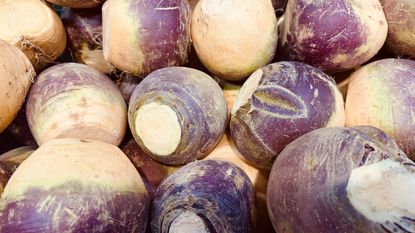
Forget haggis — the humble swede is the real hero of the Burns Night meal
By Douglas Chalmers
-
-

Tom Parker Bowles talks tartiflette: 'This is not a dish worried about precision, elegance or nuance. It is all about beautiful ballast and you wouldn’t want it any other way'
By Tom Parker Bowles
-
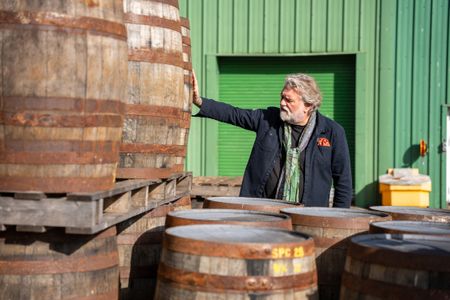
For Hairy Biker Si King, the secret ingredients will always be hard work and community
By Molly Pepper Steemson
-

The enduring allure of menus from ancient civilisations to modern day, via the revolutionary France
By John F. Mueller
-

The 12 types of hangover, from 'Backwards Binoculars' to 'Titanic', and how to cure them all
By Olly Smith
-
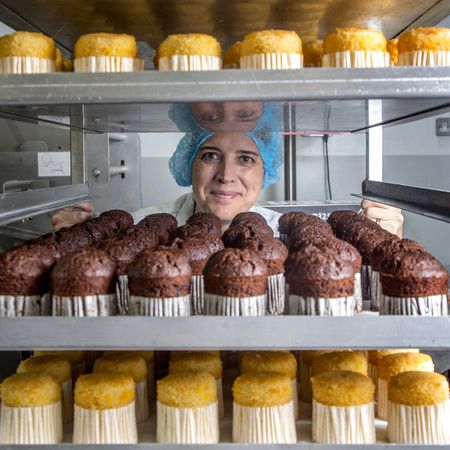
'We begin making in May and start packing and despatching in November — it’s carnage': How the Cotswolds' favourite cake-makers get ready for Christmas
By Jane Wheatley
-

Tim Wilson of The Ginger Pig on the perfect Christmas ham
By Jane Wheatley
-







